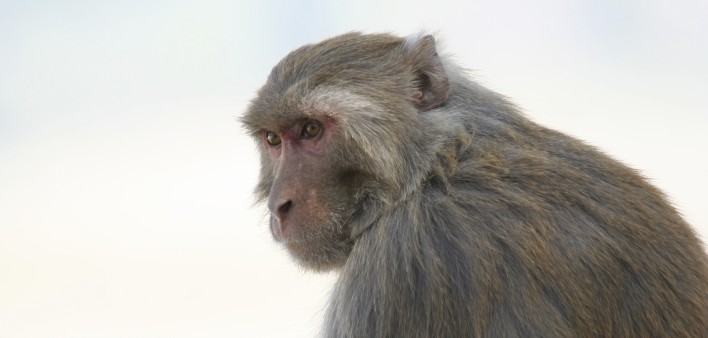A single injection of a pair of long-acting, genetically modified broadly neutralizing antibodies protected rhesus macaque monkeys against infection with simian-human immunodeficiency virus (SHIV), a man-made HIV-like virus created for research purposes.
Publishing their findings in Nature Medicine, scientists introduced genetic mutations to two broadly neutralizing antibodies against HIV, 3BNC117and 10-1074. This modification was intended to extend the antibodies’ half-lives and thus the duration of their effectiveness in preventing infection. The scientists gave single infusions of one of the two antibodies—the modified versions were known as 3BNC117-LS and 10-1074-LS—to rhesus macaques and then exposed the animals to SHIV weekly.
The animals that received the 10-1074-LS antibody contracted SHIV after a median 27 weeks and a range of 18 to 37 weeks. Those that received the 3BNC117-LS were infected after a median 17 weeks and a range of 11 to 23 weeks. The latter antibody had a shorter half-life than the former.
By comparison, monkeys that received a placebo infusion were infected after a median three weeks.
The investigators also combined both antibodies and injected six monkeys subcutaneously (under the skin, as opposed to transfused to in a vein) with one third of the dose used for the infusions. This method protected the animals against weekly SHIV exposures for a median of 20 weeks.
A Phase I clinical trial of 3BNC117-LS among humans is already under way.
To learn more about the Phase I trial, click here.
To read the study, click here.
To read a press release about the study, click here.







Comments
Comments